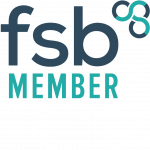In this blog, we will discuss the challenges and options available for individuals looking to secure a bad credit mortgage.
Having bad credit can make it difficult to get approved for a mortgage, as many lenders consider credit score an important factor in determining the risk of lending money. However, just because you have bad credit doesn’t mean homeownership is out of reach. In this blog, we will explore the different types of bad credit mortgages available, and how to qualify for them. We will also provide tips on how to improve your credit score and increase your chances of getting approved for a mortgage.
If you’re looking to get approved for a bad credit mortgage, this guide is for you. We will walk you through the process and provide you with the information you need to make an informed decision and take the necessary steps to make your dream of homeownership a reality.
Understanding Bad Credit Mortgages
Definition of bad credit
Bad credit is a term used to describe a low credit score, typically below 600. A low credit score can be the result of missed payments, high levels of debt, or a history of financial mismanagement. It can indicate that an individual is a higher risk to lenders, and may have a harder time getting approved for loans or credit cards.
The difference between bad credit and subprime mortgages
Bad credit and subprime mortgages in the UK are often used interchangeably, but they are not exactly the same. Subprime mortgages are specifically designed for borrowers with bad credit, while bad credit can refer to various credit scores and financial situations. Subprime mortgages typically have higher interest rates and stricter terms than traditional mortgages, to account for the increased risk to the lender.
How bad credit affects mortgage approval
Having bad credit can make it more difficult to get approved for a mortgage in the UK. Lenders will consider your credit score and credit history when assessing your mortgage application. They may also consider other factors, such as your income, employment history, and the value of the property you are looking to purchase. If you have bad credit, you may be required to make a larger down payment or pay a higher interest rate. It’s important to note that bad credit doesn’t mean you can’t get approved for a mortgage, but it may make the process more difficult.
The Pros and Cons of Bad Credit Mortgages
Advantages of bad credit mortgages:
- They provide an opportunity for individuals with bad credit to become homeowners. Having bad credit does not mean homeownership is out of reach. Bad credit mortgages are designed for people with less than perfect credit history, who may find it difficult to get approved for a traditional mortgage.
- They may have more flexible terms than traditional mortgages. Bad credit mortgages can offer more flexible options when it comes to down payments, loan terms, and interest rates, which can be beneficial for borrowers who may not qualify for traditional loans.
- They can help rebuild credit if payments are made on time. Making payments on time and in full can help improve the credit score, which can open up more opportunities for borrowers in the future.
Disadvantages of bad credit mortgages:
- They typically have higher interest rates than traditional mortgages. Due to the increased risk for the lender, bad credit mortgages usually come with higher interest rates than traditional mortgages. This can increase monthly payments and increase the loan’s cost.
- They may have stricter terms and conditions. Bad credit mortgages often come with stricter terms and conditions, such as shorter loan terms, higher down payment requirements, and stricter income and employment criteria.
- They may require a larger down payment. Many bad credit mortgages may require a larger down payment, which can be a challenge for borrowers with limited funds.
Comparison to traditional mortgages:
Bad credit mortgages are typically more expensive than traditional mortgages due to higher interest rates and stricter terms. However, they can provide an opportunity for individuals with bad credit to become homeowners when they may not qualify for traditional mortgages. It’s important to weigh the pros and cons and consider the long-term financial impact before making a decision. It’s also recommended to work with a qualified mortgage broker or financial advisor to determine the right option for you.
Qualifying for a Bad Credit Mortgage
Income and credit requirements:
To qualify for a bad credit mortgage, borrowers must meet certain income and credit requirements. Lenders typically require proof of income, such as pay slips or tax returns, as well as a credit check to determine the borrower’s credit score and credit history. The specific requirements may vary depending on the lender, but generally, borrowers with a higher credit score and stable income will have an easier time qualifying for a bad credit mortgage.
Down payment and cash reserves:
Many bad credit mortgages will require a higher down payment than traditional mortgages. A down payment is the amount of money the borrower will pay upfront to purchase the property. Lenders may also require cash reserves, which are funds that the borrower has set aside for unexpected expenses. This is to ensure that the borrower has enough money to cover any potential issues that may arise during the loan process.
Proof of income and assets:
In addition to income and credit requirements, lenders may also require proof of income and assets. This may include bank statements, pay stubs, tax returns, and other financial documents. Lenders will use this information to determine the borrower’s ability to repay the loan and assess the borrower’s financial situation. It’s important to be prepared to provide all the necessary documentation when applying for a bad credit mortgage.

Finding the Right Bad Credit Mortgage
Comparison of fixed-rate and variable rate mortgages:
When it comes to bad credit mortgages, borrowers can choose between a fixed-rate or variable rate mortgage. A fixed-rate mortgage has an interest rate that remains the same throughout the entire loan term, while a variable-rate mortgage has an interest rate that can fluctuate depending on market conditions or lender policies. It’s important to consider how your finances may change over time when choosing between the two.
Pros and cons of different loan types:
There are several types of bad credit mortgages available, such as FHA loans, VA loans, and subprime mortgages. Each type of loan has its own pros and cons, such as different interest rates, loan terms and qualification requirements. It’s important to research and compare the different loan types to determine which one is the right fit for your financial situation.
Importance of working with a knowledgeable and experienced mortgage professional:
Navigating the mortgage process can be challenging, especially when you have bad credit. It’s essential to work with a knowledgeable and experienced mortgage professional who can guide you through the process, help you understand the options available, and find the right bad credit mortgage that suits your needs. A qualified mortgage professional will have access to a wide range of loan products and can help you understand the terms and conditions of different loans. They can also help you improve your credit score and increase your chances of getting approved. They will navigate the risks and benefits of choosing a fixed-rate or variable rate mortgage, and help you make an informed decision based on your individual needs and financial goals. It is important to work with a professional who understands the market and can give you personalised advice and guidance.
Improving Your Credit Score
Tips for Improving Your Credit Score
- Pay your bills on time: Late payments can have a significant impact on your credit score. Set reminders or automate payments to ensure that bills are paid on time.
- Keep credit card balances low: High credit card balances can negatively impact your credit score. Try to keep your balances below 30% of your credit limit.
- Dispute errors on your credit report: Review your credit report regularly and dispute any errors you find. Mistakes on your credit report can lower your score.
- Don’t close old credit accounts: Closing old credit accounts can lower your credit score by reducing your credit limit.
- Be patient: Improving your credit score takes time, so be patient and stick to your plan.
How Credit Repair Companies Can Help
Credit repair companies can help you improve your credit score by disputing errors on your credit report, negotiating with creditors, and providing credit counselling. However, it’s important to do your research and choose a reputable company. Be wary of companies that make unrealistic promises or charge high fees.
The Impact of Credit Improvement on Mortgage Approval
A higher credit score can have a significant impact on your ability to get approved for a mortgage. Lenders use your credit score to determine your risk as a borrower, so a higher score can lead to better interest rates and more favourable terms. Improving your credit score can help you qualify for a mortgage, even if you have bad credit.
It’s important to note that having a good credit score is not the only factor that determines if you’ll be approved for a mortgage. Lenders will also consider your income, employment history, and debt-to-income ratio. It’s always a good idea to talk to a mortgage professional to understand what specific requirements are needed to be approved for a mortgage with bad credit.
Navigating bad credit mortgages can be challenging, but it is not impossible. With the right knowledge and resources, it is possible to secure a mortgage despite having bad credit. It’s important to understand that bad credit doesn’t have to mean the end of your homeownership dreams. By taking steps to improve your credit score, and working with a reputable lender like Status Mortgages, you can increase your chances of getting approved for a bad credit mortgage.
Remember, don’t let bad credit hold you back from achieving home ownership. Take action now and start working towards a brighter financial future.
Listen to our podcast about all things bad credit mortgages here.
If you would like to check your credit score, you can do so here.
YOUR PROPERTY MAY BE REPOSSESSED IF YOU DO NOT KEEP UP REPAYMENTS ON YOUR MORTGAGE OR ANY OTHER DEBT SECURED ON IT. |









